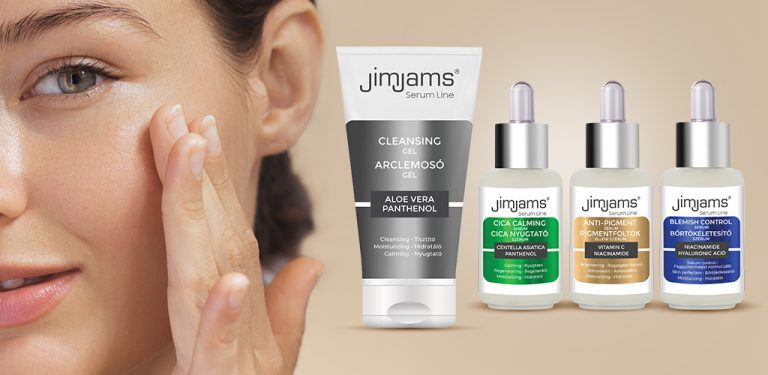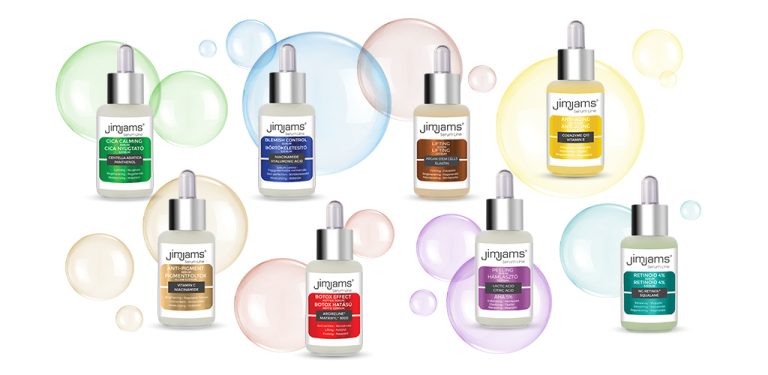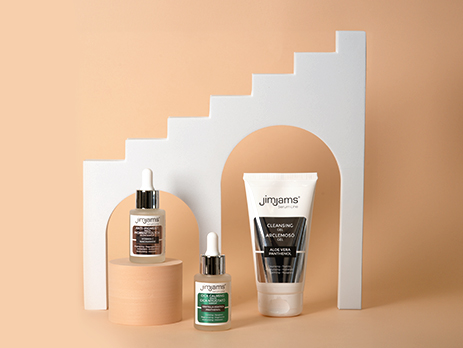Characteristics and care of sensitive skin
IN THIS ARTICLE:
What is sensitive skin?
The skin’s protective barrier
Characteristics of sensitive skin
How to care for sensitive skin
Active ingredients for sensitive skin
Skin sensitivity can be a symptom accompanying any skin type, including seborrheic, lipid-deficient, dehydrated, rosacea-prone, or combination skin. Sensitive skin reacts more intensely to external and internal changes—it can turn red in cold weather and even burn easily in mild sunlight.
Several factors can contribute to sensitivity, such as genetic predisposition, irritation, ingredient allergies, or underlying inflammation in the body. The first step is always to identify and eliminate the root cause.
When it comes to skincare, it’s essential to know that the protective barrier of sensitive skin is extremely fragile, making it more prone to irritation and damage.
The skin’s outermost layer and a waterproof barrier work together to form the skin’s defense system, also known as the skin barrier. This protective layer shields the skin from external environmental factors such as UV radiation, pollution, allergens, and bacteria.
When the skin barrier is damaged, it increases the risk of irritation, infections, contact allergies, and skin disorders, making its preservation extremely important.
A healthy skin barrier not only protects against physical damage but also reduces water loss, keeping the skin hydrated, which is essential in preventing and treating wrinkles.
Characteristics of sensitive skin:
- Frequent redness
- Rough, dry, or eczema-prone patches
- Tightness, peeling, and itching
- Small red spots may appear
- Prone to swelling
How to care for sensitive skin
Fragrances and essential oils – Fragrances found in cosmetics are potential skin irritants that your skin doesn’t actually need. They are among the most common allergens, including lavender, mint, nettle, sage, thyme, rosemary, cedar, and pine.
Alcohols – High concentrations of alcohols like isopropyl, ethyl, or denatured alcohol can trigger inflammation, dry out the skin, and weaken the skin’s natural barrier, which is already compromised in sensitive skin. However, not all alcohols are bad—fatty alcohols such as cetyl alcohol and stearyl alcohol can actually help hydrate and soften the skin. Still, for sensitive skin, it’s best to avoid harsh alcohols.
Preservatives and cleansing agents – Ingredients like parabens, Sodium Lauryl Sulfate (SLS), and Sodium Laureth Sulfate (SLES) can be too harsh for sensitive skin. It is recommended to completely avoid these three ingredients.
Active ingredients for sensitive skin
Aloe Vera: A popular ingredient in cosmetic products, best known for its soothing properties. It is rich in antioxidants, promotes wound healing, supports skin regeneration, and has calming and anti-inflammatory effects.
The Serum Line Cleanser is specially developed for sensitive skin. It is hypoallergenic, skin-friendly, and free from SLES/SLS, mineral oil, silicone oil, fragrance, colorants, and ethyl alcohol.
It contains allantoin, one of the most popular soothing and moisturizing ingredients, which helps soften and protect the skin.
How to use: In the morning and evening, apply a pea-sized amount of gel to your damp palms, then gently massage it onto your face, neck, and décolletage using light, circular motions. Finally, rinse thoroughly with lukewarm water.

Centella Asiatica (CICA) is an extract from an Asian-native plant, traditionally used in medicine and now gaining popularity in modern skincare. CICA extract offers numerous benefits for sensitive and irritated skin, including soothing, anti-inflammatory, and regenerative properties.
It improves skin texture, aids in wound healing, and reduces the appearance of fine lines and wrinkles. Additionally, it helps retain moisture, enhancing the skin’s elasticity and smoothness. Rich in antioxidants, it provides effective protection against environmental stressors.
We highly recommend our lightweight, fast-absorbing, 100% fragrance- and colorant-free CICA serum, which combines allantoin, panthenol, and bisabolol to soothe redness and protect sensitive, irritated skin.
Vitamin C offers numerous benefits for sensitive skin. It is a powerful antioxidant that neutralizes free radicals, reducing irritation and damage caused by external stressors. Additionally, it stimulates collagen production, improving skin elasticity and helping to reduce fine lines and wrinkles. Its anti-inflammatory properties help soothe redness, minimize hyperpigmentation, and fade dark spots. After using Vitamin C, proper sun protection is essential to maintain the health and radiance of the skin.
Niacinamide (the water-soluble form of Vitamin B3) is highly recommended for sensitive skin due to its numerous beneficial properties that support skin health and appearance. It not only combats signs of aging but also strengthens the skin’s protective barrier, enhancing its defense against external stressors. Niacinamide is highly effective in reducing hyperpigmentation and age spots, promoting a more even complexion. For optimal hydration and soothing effects, niacinamide pairs perfectly with hyaluronic acid. Together, they enhance the skin’s natural moisture retention and help reduce inflammation. A true Jolly Joker for your skincare routine!






